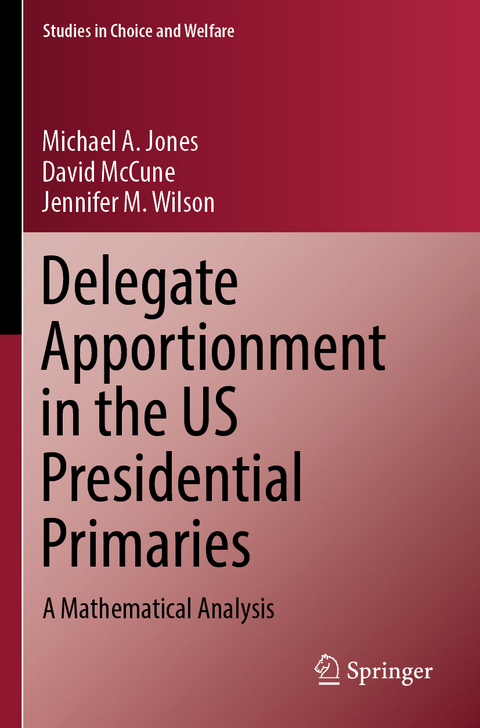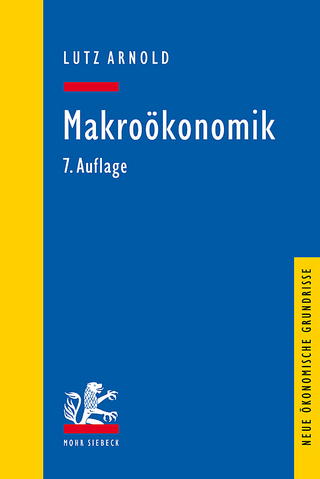
Delegate Apportionment in the US Presidential Primaries
Springer International Publishing (Verlag)
978-3-031-24956-3 (ISBN)
This book provides a comprehensive mathematical description and analysis of the delegate allocation processes in the US Democratic and Republican presidential primaries, focusing on the role of apportionment methods and the effect of thresholds-the minimum levels of support required to receive delegates. The analysis involves a variety of techniques, including theoretical arguments, simplicial geometry, Monte Carlo simulation, and examination of presidential primary data from 2004 to 2020.
The book is divided into two parts: Part I defines the classical apportionment problem and explains how the implementation and goals of delegate apportionment differ from those of apportionment for state representation in the US House of Representatives and for party representation in legislatures based on proportional representation. The authors then describe how delegates are assigned to states and congressional districts and formally define the delegate apportionment methods usedin each state by the two major parties to allocate delegates to presidential candidates.
Part II analyzes and compares the apportionment methods introduced in Part I based on their level of bias and adherence to various notions of proportionality. It explores how often the methods satisfy the quota condition and quantifies their biases in favor or against the strongest and weakest candidates. Because the methods are quota-based, they are susceptible to classical paradoxes like the Alabama and population paradoxes. They also suffer from other paradoxes that are more relevant in the context of delegate apportionment such as the elimination and aggregation paradoxes. The book evaluates the extent to which each method is susceptible to each paradox. Finally, it discusses the appointment of delegates based on divisor methods and notions of regressive proportionality.
This book appeals to scholars and students interested in mathematical economics and political science, with an emphasis on apportionment and social choice theory.
Michael A. Jones is Associate Editor and Managing Editor of Mathematical Reviews, a division of the American Mathematical Society. Previously, he held faculty positions at Montclair State University in New Jersey (USA), Loyola University Chicago and the US Military Academy at West Point. From 2015 to 2019, he served as the editor of the Mathematical Association of America's Mathematics Magazine. He earned his doctorate in game theory under Donald G. Saari from Northwestern University's Department of Mathematics in 1994. His research often focuses on the application of mathematics to the social sciences.
David McCune earned his PhD in algebra from the University of Nebraska-Lincoln (USA) in 2011. He is Associate Professor of mathematics at William Jewell College (USA), where he has worked since 2012. His main area of research is mathematical political science, with an emphasis on apportionment and social choice theory.
Jennifer M. Wilson earned her PhD in 1993 from Princeton University (USA). She is currently Associate Professor in the Department of Natural Sciences and Mathematics at Eugene Lang College, The New School, where she has been on the faculty since 2003. Her research focuses on the idea of fairness and its application to mathematical problems in the social sciences. She has published articles on cooperative game theory, social choice theory, resource allocation, and apportionment. She also writes and teaches on connections between mathematics and the arts, and was a member of the Visualizing Finance Lab at Parsons, The New School, for many years.
Part I. Description of Delegate Allocation Rules.- Chapter 1. Apportionment in the US Presidential Primaries.- Chapter 2. The Democratic Party Primary.- Chapter 3. The Iowa and Nevada Democratic Caucuses.- Chapter 4. The Republican Party Primary.- Part II. Analysis of Delegate Allocation Rules.- Chapter 5. Properties of the Apportionment Methods used in the Primaries.- Chapter 6. Paradoxes.- Chapter 7. Exploring Alternative Ways to Allocate Delegates.
"This interesting book demonstrates the application of mathematics to the apportionment problem, especially as used in the US presidential primary. The mathematical analysis is excellent, comprehensive and supported with real data, making this book an important and must-read reference for people who are interested in US politics, especially the application of apportionment methods. The authors indeed show a passion and expertise in writing this book and all deserve credit for a great job." (Dharma Lesmono, Mathematical Reviews, May, 2024)
| Erscheinungsdatum | 24.03.2024 |
|---|---|
| Reihe/Serie | Studies in Choice and Welfare |
| Zusatzinfo | XVII, 215 p. 28 illus., 2 illus. in color. |
| Verlagsort | Cham |
| Sprache | englisch |
| Maße | 155 x 235 mm |
| Themenwelt | Wirtschaft ► Volkswirtschaftslehre |
| Schlagworte | Applications of mathematics in economics • Apportionment in the US Presidential Primary • Apportionment paradoxes • Delegate apportionment methods • Delegate selection rules • Electoral Politics • Hamilton's method • Social Choice Theory • US Democratic and Republican presidential primaries • US presidential primaries |
| ISBN-10 | 3-031-24956-9 / 3031249569 |
| ISBN-13 | 978-3-031-24956-3 / 9783031249563 |
| Zustand | Neuware |
| Haben Sie eine Frage zum Produkt? |
aus dem Bereich


